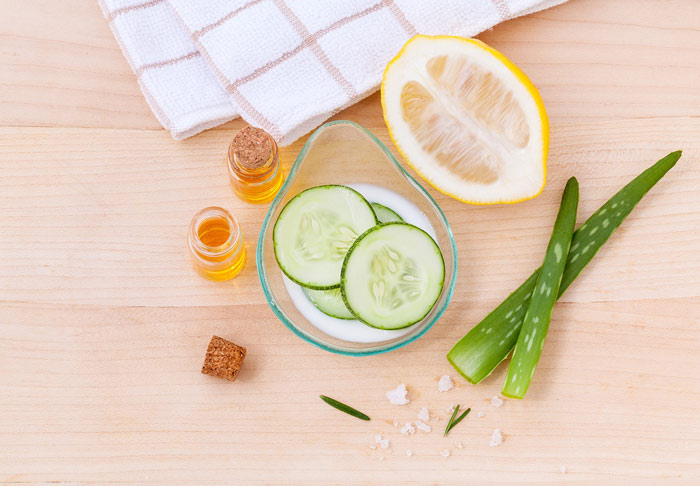As time passes by, the body begins to show all the tell-tale signs of aging. Greying or thinning of the hair, fine lines, and wrinkles, loss of skin elasticity to name but a few. One of the major giveaways of our age can be our teeth. With decades spent consuming high staining culprits such as sweets, berries, tea, coffee and wine, it’s no surprise that our teeth become a little lack luster and discoloured. Cigarettes, genetics, and medication can also play a huge role in the demise of our teeth and dental health.

As with any cosmetic imperfection or flaw, there are a plethora of companies selling us the miracle product that will cure our fallibility. If you aren’t taken in by them, you can always rely on social media to find a multitude of natural remedies claiming to garner the most amazing results, utilizing only contents from your pantry!
I have to say I have been lured in by these Pinterest Professionals! Claiming that a mixture of oatmeal, raw eggs and honey face mask would get rid of my wrinkles in just 3 applications! Guess what?! … I still have wrinkles!
The problem with these kinds of self-submissions is that they aren’t regulated. Someone could post a picture of a beautiful face and swear that they doused themselves in horse manure, in order to obtain a flawless complexion and rejuvenated skin and there would be hordes of women, off to score themselves some dung!
The same experimentation often occurs with teeth whitening, but before you try any home remedies, it’s really important to do your research, to ensure that you won’t be doing more harm than good.
Here are a few examples that you need to be wary of:
 Salt and baking soda. Baking soda is often an active ingredient used in other teeth whitening products such as toothpaste. The difference is, it isn’t being used in the same form. Applying it to teeth and scrubbing away may make your teeth feel nice and zingy but the abrasive properties can actually cause erosion to the enamel, which in turn will cause increased staining and risk of the cavity.
Salt and baking soda. Baking soda is often an active ingredient used in other teeth whitening products such as toothpaste. The difference is, it isn’t being used in the same form. Applying it to teeth and scrubbing away may make your teeth feel nice and zingy but the abrasive properties can actually cause erosion to the enamel, which in turn will cause increased staining and risk of the cavity.- Lemon Juice. As we know, lemons are highly acidic and it’s this citric acid which assists in the extraction of minerals from teeth, making them appear whiter. This can also cause permanent damage to tooth enamel through erosion. A study comparing beverages and fruit juices in The Journal of Endourology found that lemon juice had the highest citric acid content of all other juices studied. Probably not the ideal solution to polish onto teeth.
- Strawberries. Although widely touted as a natural teeth whitener thanks to its content of Malic acid, a study conducted in 2014 discovered that a concoction of strawberries and baking soda reduced the hardness of teeth by as much as 10%! Which is disastrous, given that further studies have found strawberries to be pretty ineffective as a method of teeth whitening.
- Apple Cider Vinegar. Apple Cider Vinegar has long been regarded as a miracle cure due to its mixture of probiotics, beneficial bacteria, and enzymes that can aid in so many ailments both internally and externally. With a PH of 3.075 it still poses a risk to teeth, especially those with compromised enamel (Tooth enamel begins to dissolve at a pH level of approximately 5.5) So it is advisable that if you are using this as a teeth whitening method, you rinse your mouth thoroughly afterwards and avoid brushing for 30 minutes or you are likely to strip the enamel further.
- Oil Pulling. Definitely a trend of the moment is Oil pulling. Swishing coconut oil around the mouth for 20 minutes is said to absorb stain-causing bacteria. Research has shown that extensive rinsing is always going to be beneficial in loosening plaque whether water or oil is used, so it’s uncertain if the coconut oil is the solution or the act of swooshing itself. Whilst there are no real adverse effects reported, the only concern is that people may opt for this technique as opposed to brushing with a fluoride toothpaste.
 There are many online resources claiming to offer comprehensive guidelines on teeth whitening treatments but caution should always be exercised.
There are many online resources claiming to offer comprehensive guidelines on teeth whitening treatments but caution should always be exercised.
Our teeth are the only parts of our body that won’t heal after damage, so we really do need to take care of the set that we have.
If you are considering a whitening treatment it’s advisable to speak with your dental practitioner.
Over the counter solutions are available but always ensure that you opt for teeth whitening products that are FDA approved and follow the instructions carefully.
There have been so many advances in the dental systems and products that are available which have seen prices fall dramatically, so there really is no need to risk the health of your teeth trialing some social media fad.
A pearly white smile is no longer just reserved for the rich and famous!
Rachel Caradine
Manager, Sales and Customer Service
Pearly Whites










